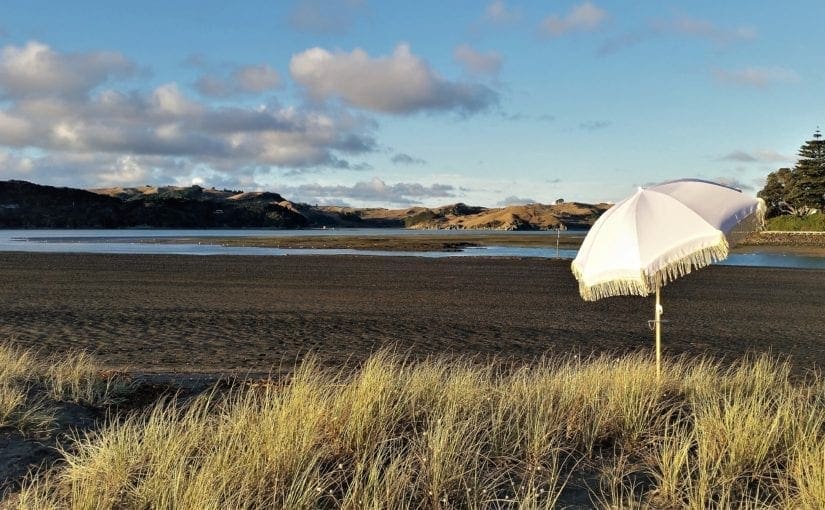Most recently updated November 27th, 2023
Estimated Reading Time: 15 minutes
It’s time to get back in shape after…..whatever happened to make you feel less than your optimal buff self.
Maybe you’ve just been really busy, or worn out from your Summer and Fall adventures, or – like me – you’ve been laid low by allergies or seasonal cold and flu?
Or maybe some of you – also like me – can’t remember how to dress yourself to go anywhere if it’s not 100 degrees and 99% humidity outside?

Well, you’d better get over it pretty quick, because Fall is here, and you know what that means?
Resort travel and Holiday parties. That’s right, and you won’t be able to hide under that bulky “ugly” sweater for all of them.
Some Resort travel will require swimwear (ack!!) and some gatherings will require the dreaded slinky dress.
And then there are all of those relatives and former classmates – perhaps even at the same resorts and gatherings…..
In North Carolina, it’s pretty much always warm enough to get outdoors and exercise – even in the Winter.
So, now that it’s cooled down enough that spontaneous combustion isn’t a concern, I’ll start getting serious again 😉
Get The FREE PDF!
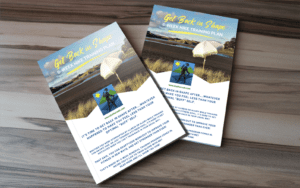
Everything that you need to start your 6 week training plan is included in this post.
But it’s a long read and may be hard to refer to while you’re training.
For your convenience, you can click here to sign up and download your FREE “Get Back in Shape” PDF file.
Then you can print it out and refer to your plan anytime you want. Happy training! LJ
Honestly though, I never really stopped hiking.
That said, ever since late May, when I returned from my epic 2-week hiking trip to Greece, I HAVE slacked off on my indoor cross-training – and it shows!

I worked my butt off for months prior to that trip, so I’d be able to do the 2-day Mount Olympus hike without hurting myself – and it was great!
But that was a few months ago, and now I could use a quick tune-up before slipping into that slinky party dress.
Keep reading to learn more about how I’m doing a quick tune-up for my upcoming Holiday trips and gatherings – and how you could, too!
NOTE: Photos in this post are from places I’ve traveled, for inspiration. (The header photo is of a black lava sand beach in Raglan, New Zealand.)
Some of my posts contain affiliate links. If you make a purchase through an affiliate link, I will receive a small payment at no additional cost to you. As an Amazon Associate, and other marketing affiliations, I earn from qualifying purchases. See full Disclosure page here.
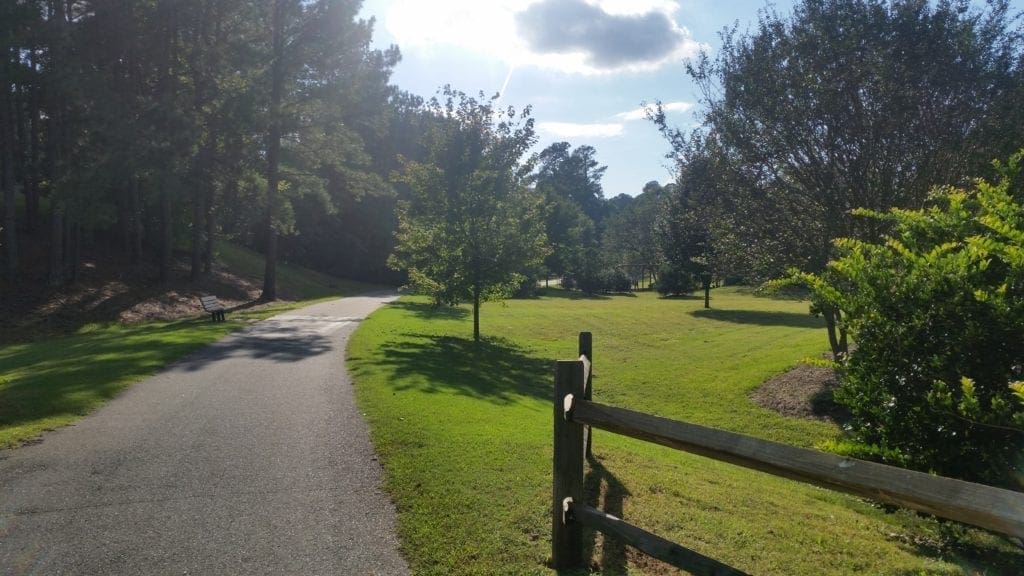
Here We Go Again
Does this feel like a repeat post? Well, it is, kind of.
This time a few years ago I was training back from an illness and getting ready for an epic hike in New Zealand.
(I’ve written another post since then about training back after an injury.)
The New Zealand trip was amazing, by the way 🙂
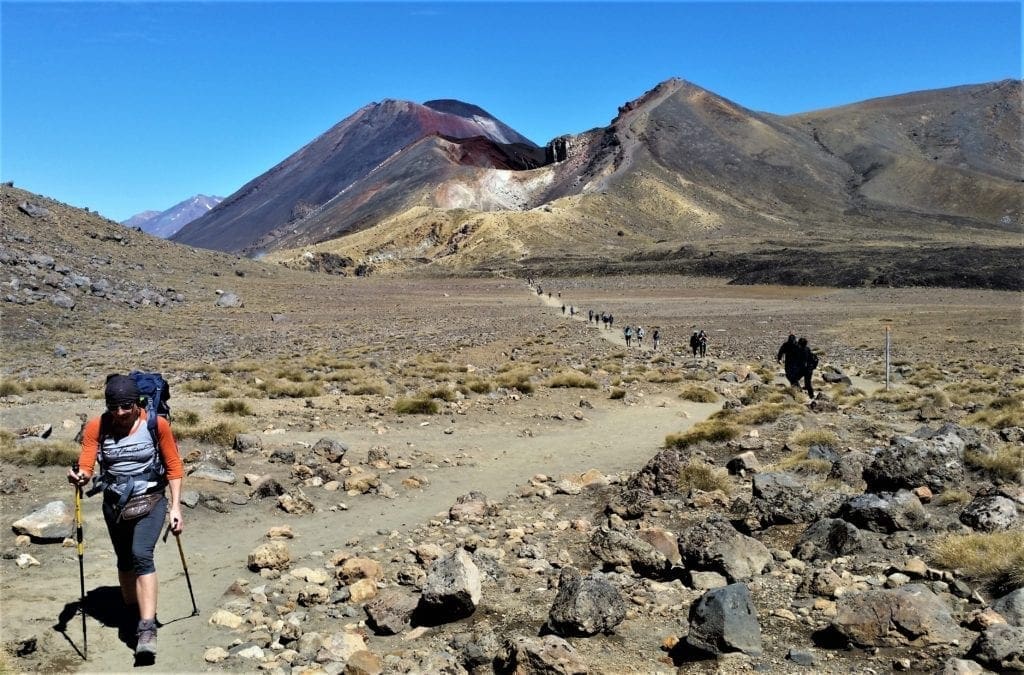
To prepare for that hike, I created a training plan called 8 Weeks to Awesome.
(I’ll be starting that training again in January, if you’d like to join us!)
But right now, I have another reason to refresh my fitness, but I don’t have a whole eight weeks to do it!
It looks like we might finally be able to take our trip to Kauai that was planned in 2019 and canceled 3 times during the pandemic.

So I not only need to get tuned up to do an epic hike on the Na Pali Coast, I also have to get toned enough so I don’t have to sit on the beach in a mummy sleeping bag….
Seriously, as a woman of a certain age, I shouldn’t feel pressured to run around on the beach wearing butt-floss, right?
And yet, I do feel like I have to look like I’d rock the butt-floss if I did choose to wear it. Fun times 😉
DISCLAIMER: Please be aware that I am not a doctor or physical therapist (and I don’t play one on TV). I’m just sharing what has worked for me.
As ever, if you have concerns before starting any new workout training or diet, please consult with your Wellness advisors.
Remedial is Remedial
It really doesn’t matter if our need for remedial training is due to recovery from an illness or injury, external constraints, or just plain laziness – the process is pretty much the same.
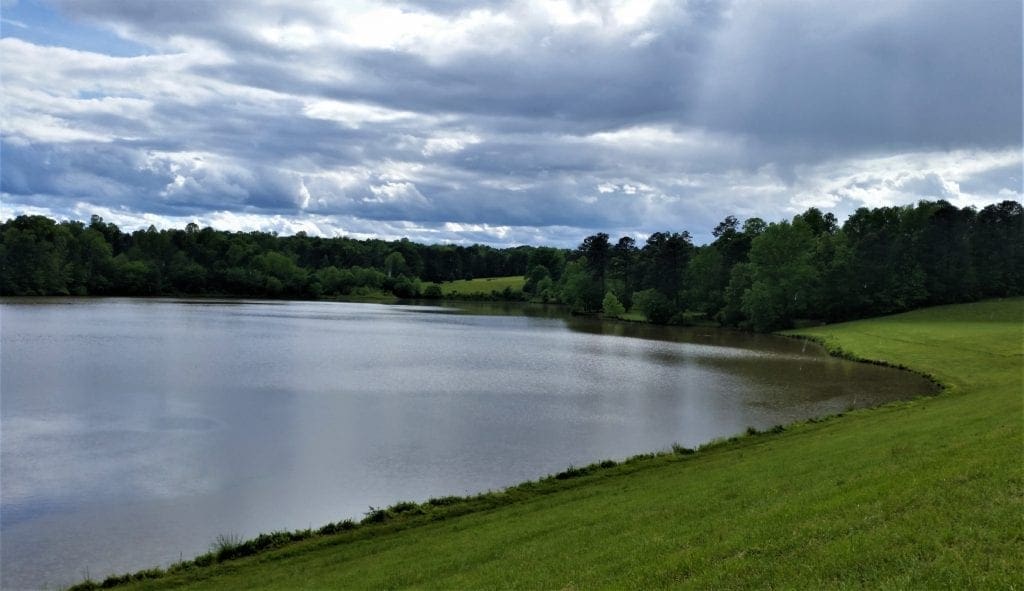
Even though I trained hard before my trip to Greece, and continued to be active after I came home, my level of fitness declined because I wasn’t training as hard.
They say it takes about 7-14 days of inactivity for your aerobic fitness to decrease, so taking a few days out of your training schedule won’t have much long-term effect.
But it’s been a few months since my Mount Olympus hike, so I’ve got some work to do!
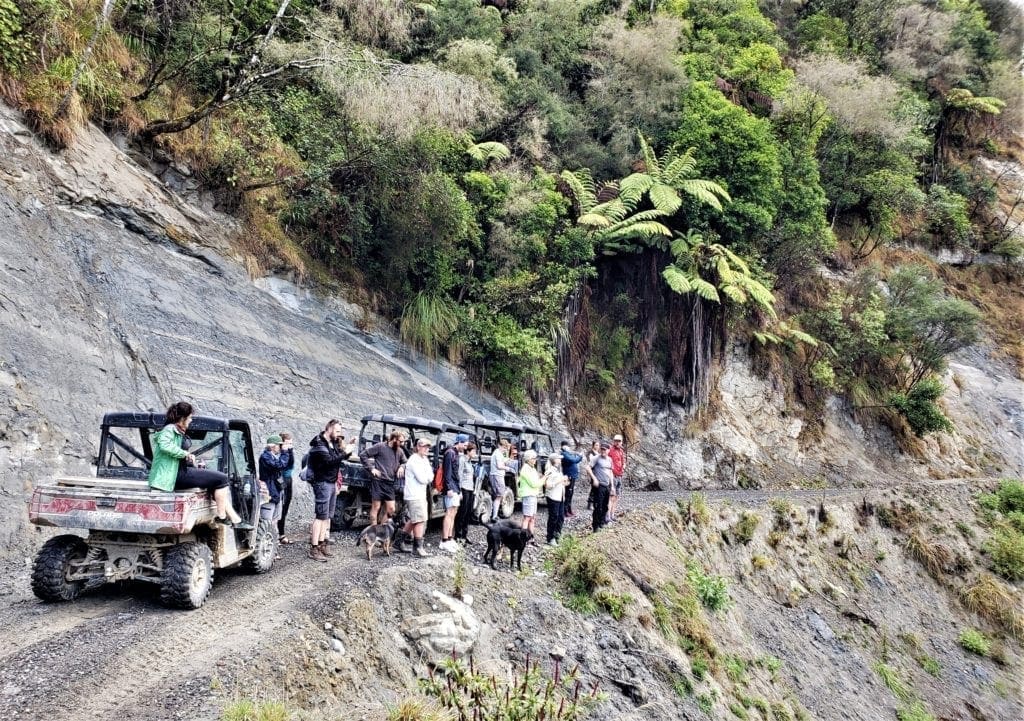
Staying Motivated
Exercise is vital for our mental and physical health, and is arguably more important than ever during periods of self-isolation.
Whether you’re training for an epic hike or a marathon, it’s hard to keep motivated when it’s too hot to train outside or you have to train back carefully from an illness or injury.
That said, it’s possible to use these restrictions as an opportunity to get stronger than ever, by adapting your workout to use your current fitness level in whatever spaces you can.
“It’s definitely possible to stay fit at home, particularly through intense workouts that tend to work better for fat loss and muscle growth in comparison to long-duration cardio,” says Chloe Twist, a personal trainer from the UK.
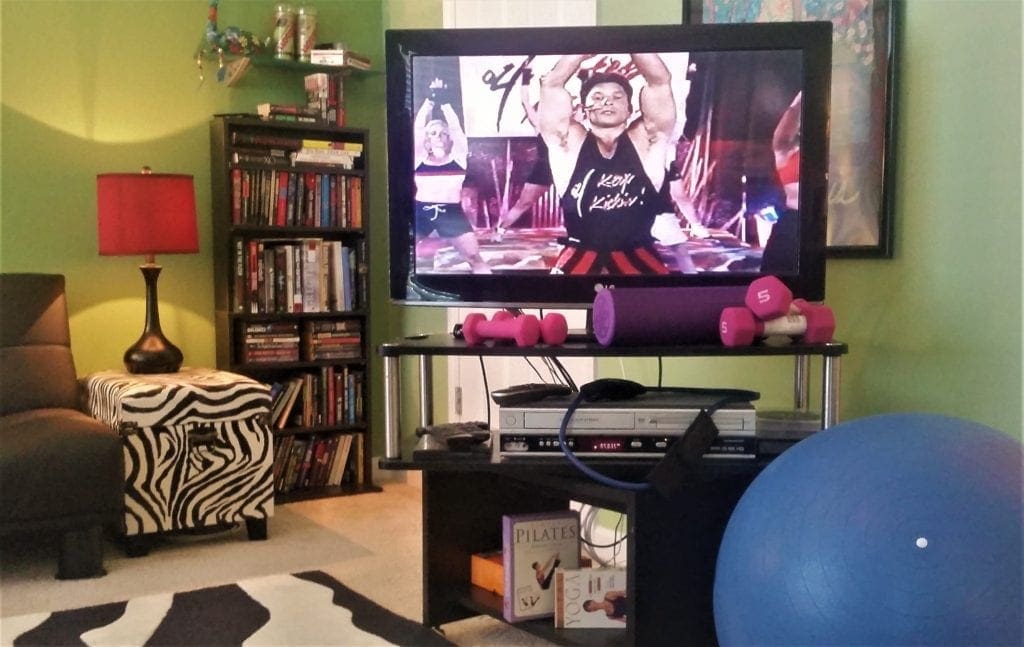
“Add kettlebells or a set of dumbbells into the mix, and this will ensure that you’re doing enough strength training to maintain and build lean muscle away from the gym.”
In my area we are also fortunate to have paved greenways available , and though a greenway hike or run is very different than hiking or running on natural trails it may be just what you need as you work your way back to your goal fitness level.
But even with the best of intentions, you may find your motivation flagging from time to time.
Setting Goals
Because of this, it’s important to set goals, and to schedule your workouts.

For example, for the purpose of training, for my goal I’ll use a dayhike I did on a recent trip – the hike to the top of Mt. LeConte in the Great Smoky Mountains National Park.
Facts About the Hike (LeConte summit via Alum Cave Trail)
Distance: 11 miles round trip
Elevation Gain: 2800 feet
Difficulty: Strenuous
Length of Time: 6 – 8 hours
You can read all about this hike in my trip writeup.

Maintaining Fitness
Routine is important, especially since so much of our daily routines have been shaken up in recent years.
I try to get my main workout in first thing in the morning, so it’s done before the day’s distractions throw me off.

Another strategy (especially if you’re working from home) is to set an alarm for two-hour intervals, for a light 10-20-minute physical break.
You could walk up and down the stairs, take a walk to the mailbox, do some jumping jacks, crunches or some stretches – just any kind of movement.
“Trying to preserve some sense of normalcy is really important for people’s well-being,” said Dr. Russell G. Buhr, a pulmonologist at U.C.L.A. Health.
He says maintaining a routine can have a positive affect on mental health.
“And good mental health promotes good physical health,” Buhr added.
Dani Johnson, a physical therapist at the Mayo Clinic Healthy Living Program, encourages people who are working from home, or staying home for health reasons, to get creative.
“Every little bit of movement counts,” she said. “So when we’re confined to our home, move, move, move.”
You don’t need fancy equipment or a lot of time; you just need to weave exercise into your schedule.
Track Your Progress
It might be also be motivating to track your progress in a fitness journal or fitness app.
Some apps have the added advantage of a virtual community, who can keep you on track – and it’s nice to have some training buddies!
I plan my workouts in advance on a written calendar, and then update them with what actually happened so I can look back and adjust future workouts if need be.
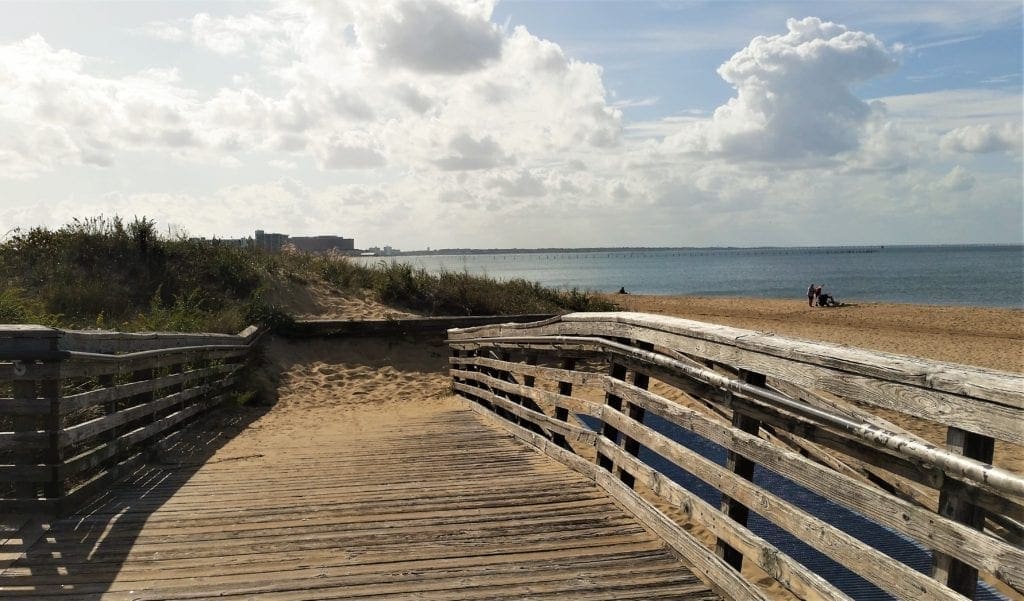
Training for a Hike
Long-distance hiking can be pretty intense. In addition to actually getting out on the trail, there are some indoor exercises that can help you get ready.

Aerobic/Cardio Exercises
The American Heart Association recommends adults engage in at least 150 minutes (two and a half hours) per week of moderate-intensity aerobic activity, or 75 minutes per week of vigorous aerobic activity.
Aerobic/cardio exercises get the heart pumping, which provides oxygenated blood to the muscles.
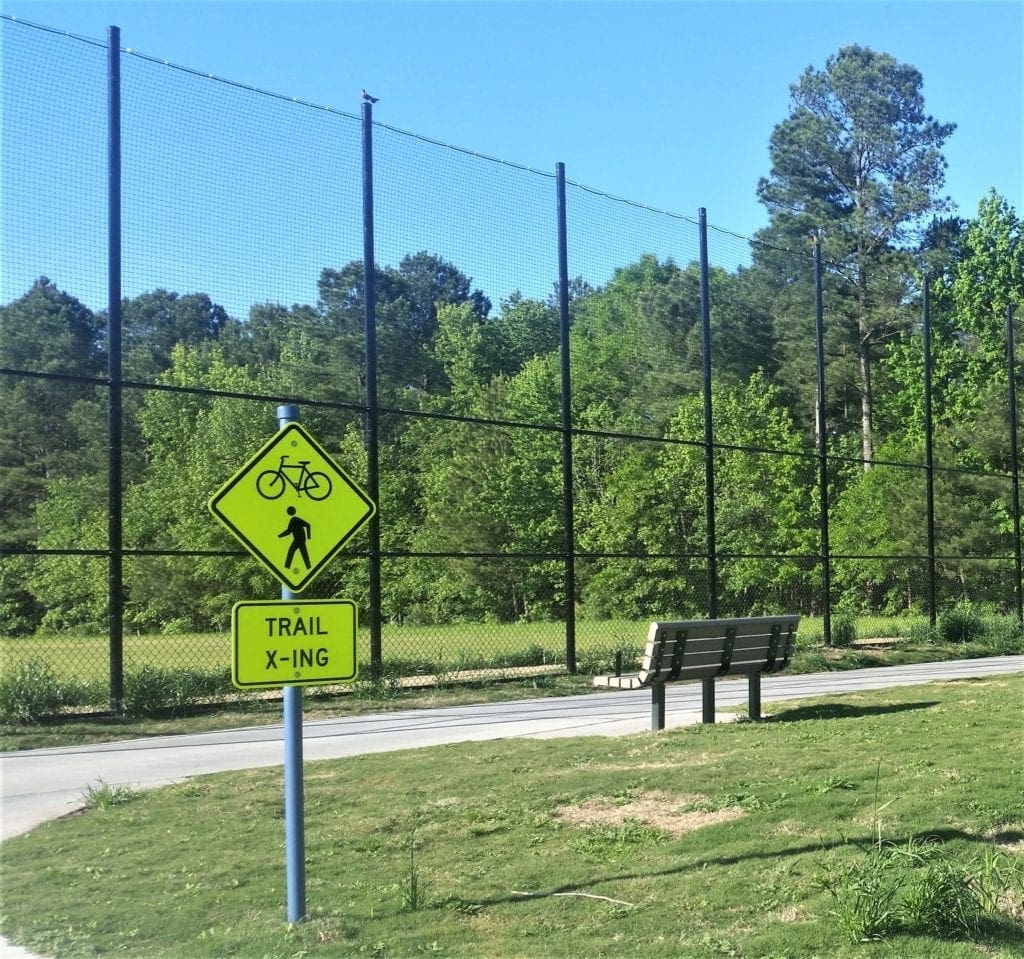
A combination of both would work too, preferably spread throughout the week. Aerobic exercises train your heart to allow you to keep going for long period of time.
This kind of training is important to keep you going strong through your whole hike.
Examples of aerobic/cardio exercises include:
-
-
- Dancing,
- Hiking,
- Walking,
- Spinning (biking), and
- Kickboxing.
-
Resistance/Strength Training
Resistance training will build your muscular strength and boost your muscular endurance.

Strength training doesn’t have to be done with weights in a gym – instead, you can train using your own body weight.
These types of exercises include:
-
- Push-ups,
- Squats,
- Lunges,
- Crunches, and
- Pull-ups.
Shorter length hikes (6 miles or less) with a heavy pack is also a good form of strength training.
Bodyweight Training Exercises
You can do bodyweight training at home using just your own body, with equipment at the gym or at home, or even along some Fitness Course trails at a local park.
Build a Bodyweight Workout
There are bodyweight exercises for all major muscle groups. For each workout, pick an exercise from each group:
-
- Lower Body: Body Weight Squat, Single Leg Deadlift, or Hip Bridge
- Upper Body (Push): Pushups, Decline Pushups, or Handstand Wall Walk
- Upper Body (Pull): Inverted Row (Table or Doorframe), Chin Ups
- Core: Reverse Crunch, Plank, Hanging Knee Tuck
- Dynamic: Jumping Jacks, Burpees
In each workout, aim for 3-4 sets of one exercise under each category for 8-12 reps each set.
Don’t worry if you can’t do that many sets to start with, just start with one set and work your way up.
I like to do one set of each group in rotation, then start over until I’ve completed as many sets as I want to do. (That way, I don’t overtire one muscle group before I move on to the next.)
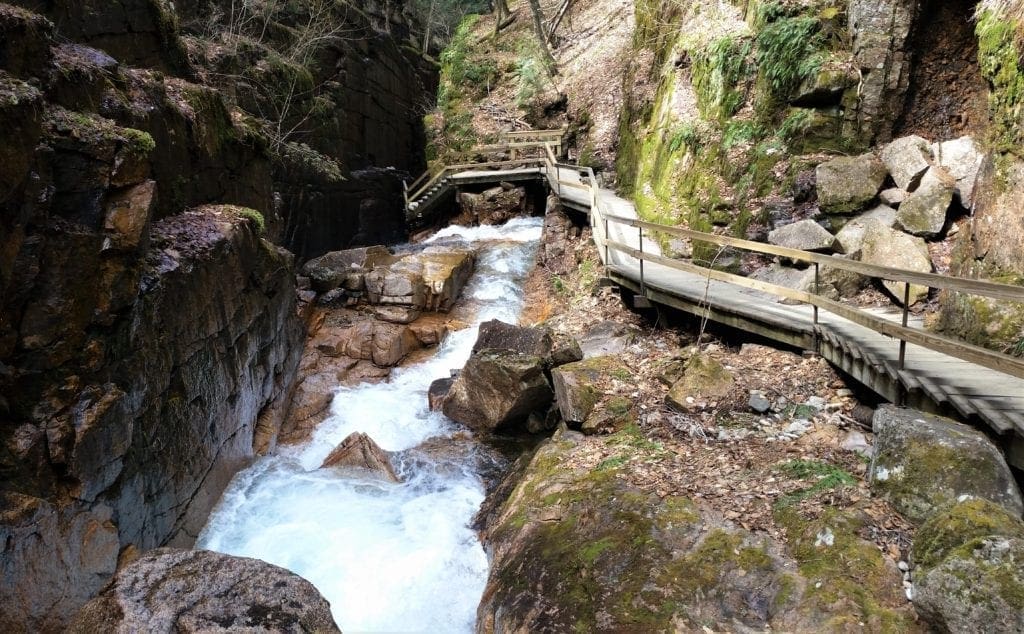
Once you get good at these exercises, it should take about an hour to do your whole workout. If you don’t have that much time, do a full circuit with fewer sets.
For a good description of all of these exercises read this article.
Get Back in Hiking Shape
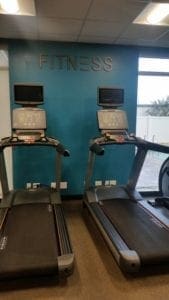
You don’t need to do a training hike every day of the week, especially if your outdoor venues are mostly limited to paved surfaces, which can be hard on your joints.
An occasional rest day is also a good idea, especially after a really hard training day.
Try to go for one longer training hike per week, with shorter walking/jogging and strength-building hikes throughout the rest of the week.
Strength-building hikes with a weighted pack can be hard on your joints on pavement, so either reduce the weight or find a natural trail if you can.
If the weather is bad, you can do this on a stair-climber or inclined treadmill (if you have access to machines), or go up and down flights of stairs wearing your pack.

Your Personal Training Plan
To make your plan, assess your current fitness level – be realistic! – then decide where you want it to be, and create a plan to bridge the gap between the two.
If you have a specific goal in mind, you can use that as an end point to help you plan a series of hikes that will prepare you for your goal.
Start with the goal you want to attain on week 6 (the last week of your training) and work backward for 6 weeks, starting from the goal hike length or activity level to your current fitness at Week 1.
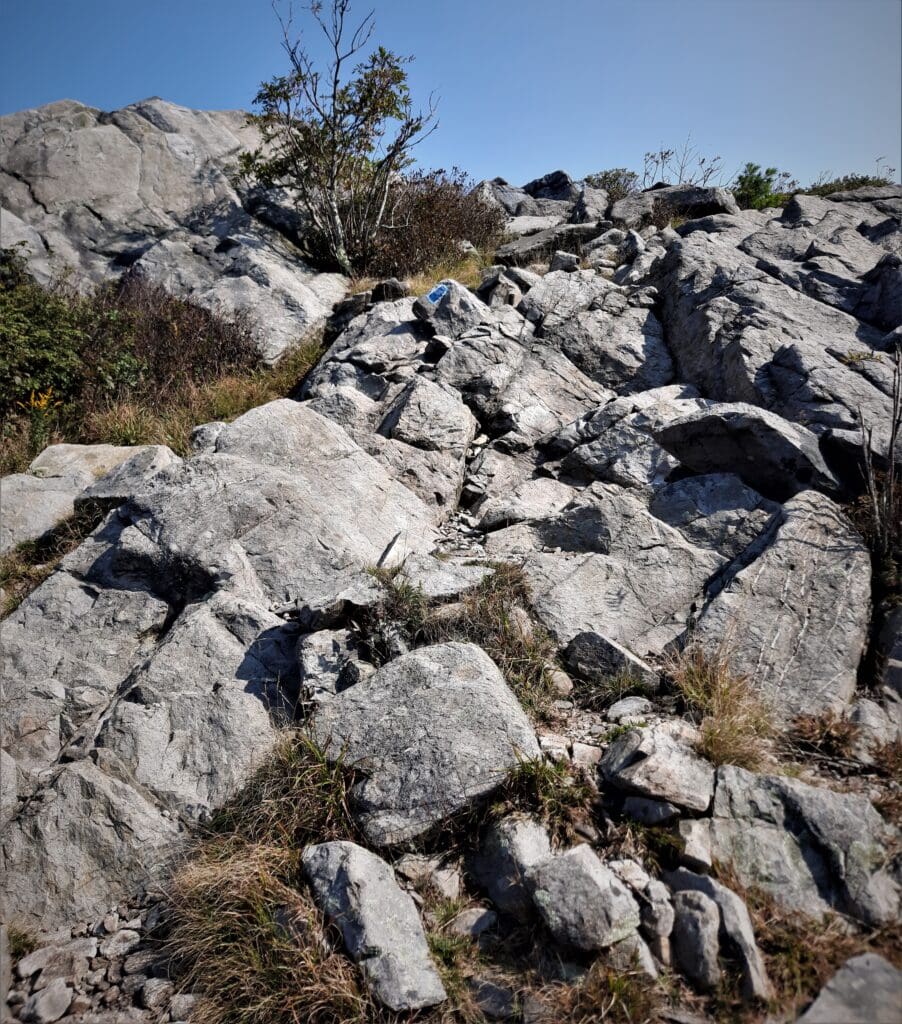
FOR EXAMPLE: On my trip to the Smokies, the hardest single day hike was an 11-mile RT hike with a 2800ft elevation gain, carrying just a day pack (maybe 15lbs). I’ve done my personal training plan with that hike in mind.
If you give yourself 6 weeks to train to comfortably to do this day hike (or something like it), your training plan hike progression would look something like this:
| Week | Miles | Elevation / Pack Weights |
| 1 | 6-7mi, Loblolly Trail | 2 water bottles |
| 2 | 6.5mi, Co Mill Trail | 2 water bottles |
| 3 | 7.2mi, Sycamore Trail | 5lbs + 2 bottles |
| 4 | 8-9mi, Loblolly-Schenck | 10lbs + 2 bottles |
| 5 | 8-9mi, Co Mill-Sycamore Loop | 10lbs + 2 bottles |
| 6 | 10-12mi, Co Mill-Big Lake | 15 lbs + 2 bottles |
NOTE: For training purposes, to create extra stress to simulate more steep elevation gain than is available locally, I’ve added more weight to the pack each week, starting with just water bottles.
If you’re already pretty fit, you could start with 5 or 10lbs and work from there. (A 500ml/16 oz water bottle weighs around 1.1 lbs.)
The shorter strength building hikes are not about speed, but I would recommend maintaining at least a 2.5-3mph pace to get the results you want.
| Week | Miles | Extra Weight |
| 1 | 6mi, Lake Crabtree | 15lbs |
| 2 | 6mi, Old Reedy Crk to Warren Cemetery | 15lbs |
| 3 | 5mi, Co Mill-MUT | 15lbs |
| 4 | 5-6mi, Bond Park Lk trail | 20lbs |
| 5 | 6.5mi, Loblolly | 20lbs |
| 6 | 6.5mi, Co Mill | 25lbs |
In my experience, it’s the elevation gain, not the mileage, that people find most difficult. Train hard, but not so hard that you hurt yourself – be realistic about your limits.
An injury will set you back, and may even cause you to have to stop training.
This is a very moderate hike training program, but everyone is starting from a different place and progresses differently.
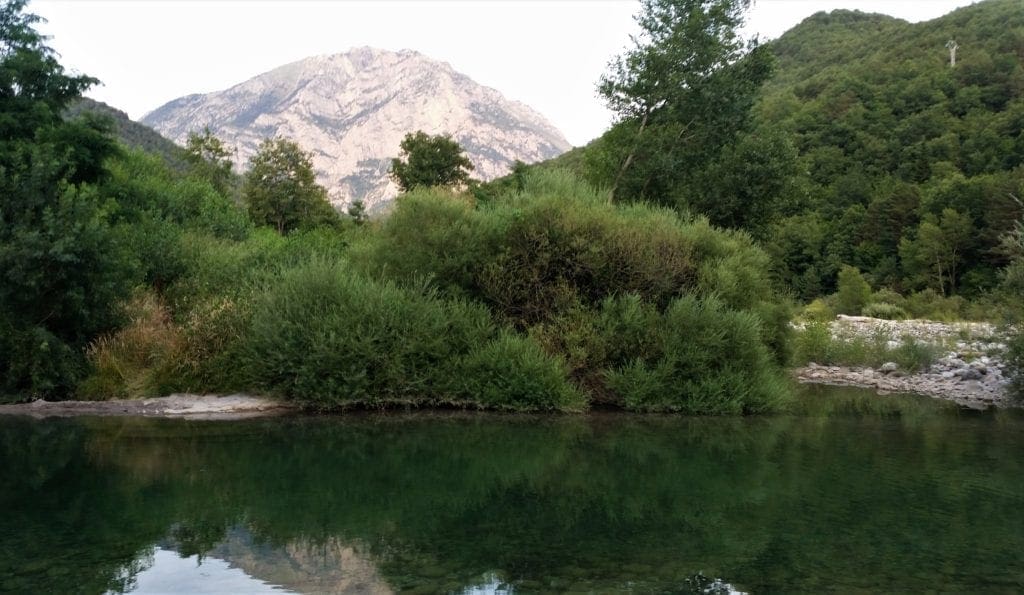
Weekly Fitness Maintenance Plan
You may already have a maintenance workout schedule that keeps you in pretty good shape.
If you’re just starting out – or coming back from an extended layoff – below is a good weekly training plan for beginners.

Because I have a weekly maintenance plan I’ve been doing all along (well, mostly), I’m starting from the Week 5-6 level, and adding to those workouts.
You can create your own timeline from wherever your starting point is right now with whatever goal suits you.
From week to week, you’ll build on the progress you’ve made in the previous weeks.

-
- Weeks 1-2: Strength-training 3 days per week, 1 hour/session.
- Weeks 3-4: Keep doing the Strength Training, and add one additional endurance workout every week for 45 minutes at moderate intensity (like jogging or hiking).
- Weeks 5-6: Continue Strength Training, increase the length of your weekly endurance workouts to 1.5 to 2 hours, and add 1 day of high-intensity exercise with high output but less weight (like speed hiking).
- Begin and end each workout with a 10 minute stretching routine.
At the end of 6 weeks, your weekly training will include:
-
- (3) Strength training workouts,
- (2-3) 1.5-2 hour moderate endurance hiking or jogging workout, and
- (1) high intensity workout – like speed hiking.
And of course, stretch every day.
|
Sample Weekly Workout Schedule |
||
| Monday | Strength | Stretch |
| Tuesday | Endurance | Stretch |
| Wednesday | Strength | Stretch |
| Thursday | Endurance | Stretch |
| Friday | Strength | Stretch |
| Saturday | Hi Intensity | Stretch |
| Sunday | Endurance | Stretch |
The above is a basic weekly maintenance schedule (after a 6 week buildup), which uses a once per day moderate workout to stay in reasonably good shape.
To train for a specific goal you’ll want to start at a maintenance level, then add some training tailored to your needs.
What About Diet?
There’s no denying that some of us have been stress eating or eating out of boredom during these weeks of restricted activity due to record-breaking temps outdoors.
Being stuck at home in close proximity to the kitchen hasn’t been helpful at all.

Neither has having grocery shopping one of our few activities out of the house. Instead of going every other week, I’ve been going every week!
I know what I should eat and what I should avoid, but I haven’t been doing it.
So, I’m going to re-focus on my Anti-Asthma Diet and principles of Clean Eating:
Eating Clean For Asthma: 9 Guidelines
-
-
- Cook your own food.
- Read nutrition labels.
- Eat whole foods.
- Avoid processed foods – including soda and trans fats.
- Limit added salt, sugars, and sauces.
- Limit wheat, dairy and red meat.
- Eat veggies and fruits every day.
- Limit alcoholic beverages.
- Drink lots of water.
-
I think the renewed focus on training and clean eating – plus portion control – will go a long way towards getting rid of my extra-fluffy bits 😉

My 6-Week Re-Fit Training Plan
Hiking is my favorite exercise, it’s also the single most popular form of exercise in the world, and the health benefits are tremendous.
For that reason, it’s the mainstay of my training program – it also helps that most of my goals are epic hikes, and the best way to train for a hike is to go hiking!
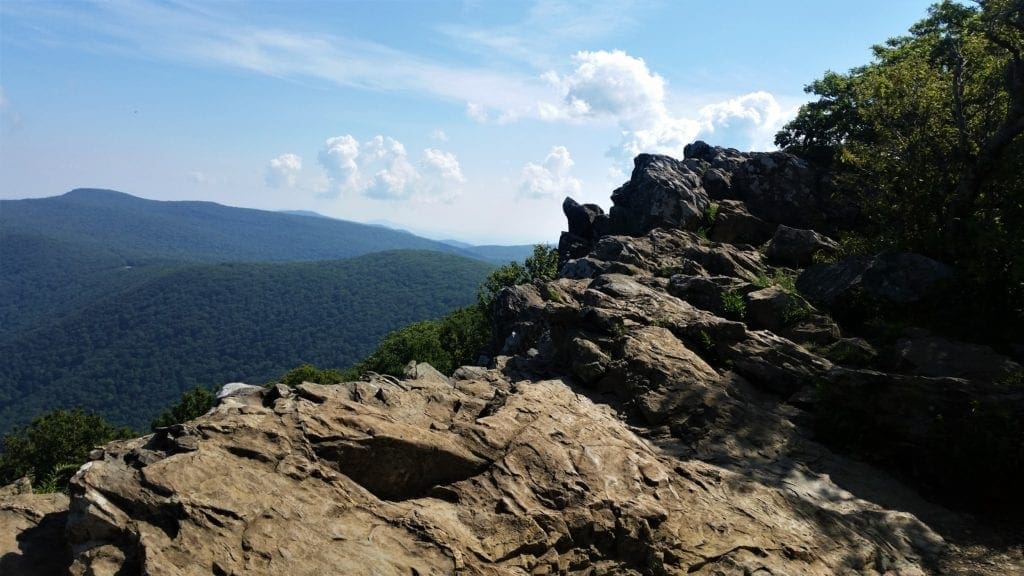
That said, I also incorporate Kickboxing, Running, light Weight-lifting, and Biking into my normal fitness routine.
My Re-Fit Training Plan is 6 weeks long because my goal is to be back in shape for the holiday gatherings (that may require slinky dresses) about 6 weeks from now.

So, now that I’m feeling better and the air outside is clearer, for the next 6 weeks (to get back into shape) I’m refocusing on my regular Weekly Maintenance plan and adding more Body Weight Training to it.
Each week of my 6 Week Re-Fit Training Plan looks like this:
-
- SUNDAY: Long hike, bodyweight training
- MONDAY: Kickbox, Arm Weights, Short Walk (< 5 mi)
- TUESDAY: Run, Bodyweight training,
- WEDNESDAY: Kickbox, Arm Weights, Short Walk (< 5 mi)
- THURSDAY: Strength Building Hike, Bodyweight training
- FRIDAY: Kickbox, Arm Weights, Short Walk (< 5 mi)
- SATURDAY: Run, Bodyweight training, Short hike or bike ride
NOTE: Stretches before and after each workout.
Hopefully, I’ll stick with the training and ditch the bulky sweaters 🙂
Maybe you’d like to join me…
Come Out for a Hike
The hikes I’ve listed are actual local hikes that I’ll be posting to my hiking Meetup group as soon as I’m sure I’m ready to lead an energetic group again!
You can sign up on Meetup if you’d like to hike with me.
If you’re not local, you can follow the plan with equivalent hikes in your area.
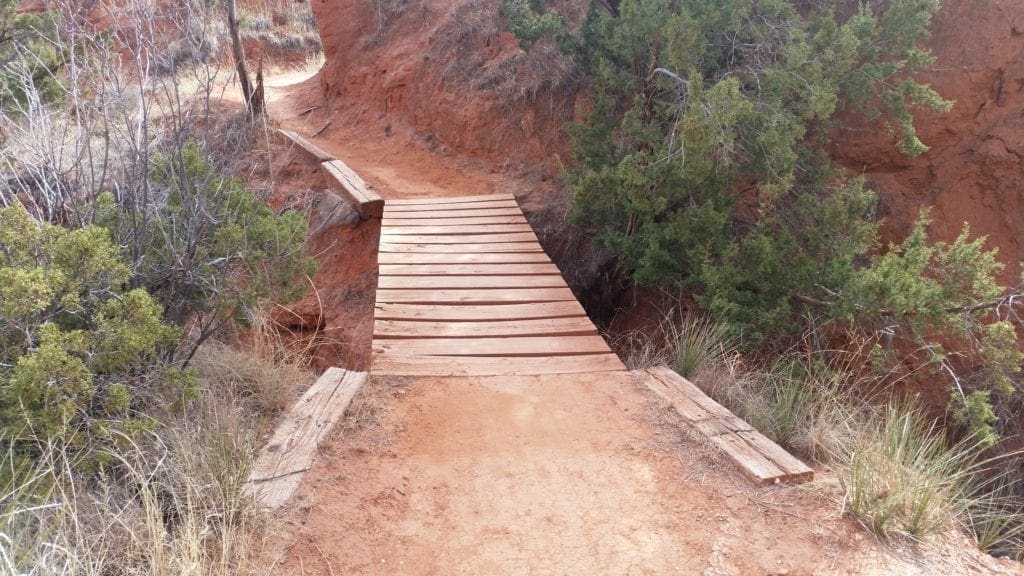
How You Can Get Started
First thing, decide what your goals are and map out your personal plan like I did.
Try a couple of workouts and see how it goes.
Remember, this is just for you – there’s no reason you can’t modify your plan if you find you’ve been too ambitious to start with.

For outdoor exercise, you might want to start with a small hike or a short run and see how you feel about it before you finalize the distances and pack weights in your plan.
Then find some available trails in your local area and have at it.
(Dress comfortably and wear sturdy footgear with non-slip soles.)
Remember to bring water and a cell phone. Also, you might want to leave a note. 🙂
But mostly, get out there and have fun!
By following a training plan that increases over time, you’ll build the strength and endurance you need to take on any task you set your mind to.
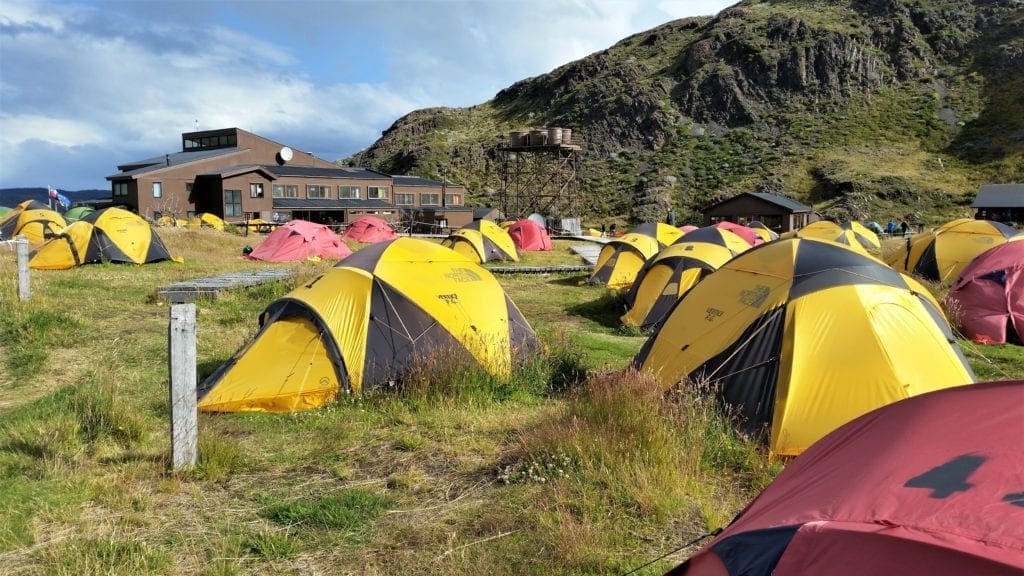
I hope this post has been helpful and motivational for you! Drop me a note with any questions and I’ll get back to you as quickly as I can.
To see entries from other training plans go to my Training Log.
I hope they’ll all be helpful and encouraging 🙂
For more posts with ideas for getting fit and healthy, go to the Fitness & Wellness page.
Thanks for stopping by – see you next time! LJ
To Get New Idratherwalk Posts
sent directly to your inbox (how convenient!) Click this Button
If you enjoyed this post, please share it:
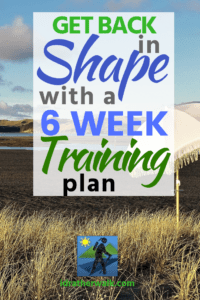

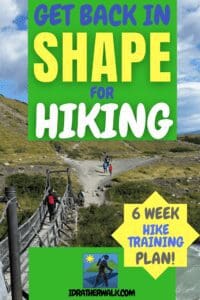

LJ has spent much of her free time as a single Mom – and now as an empty-nester – hiking in the US and around the world. She shares lessons learned from adventures both local and in exotic locations, and tips on how to be active with asthma, plus travel, gear, and hike planning advice for parents hiking with kids and beginners of all ages. Read more on the About page.

